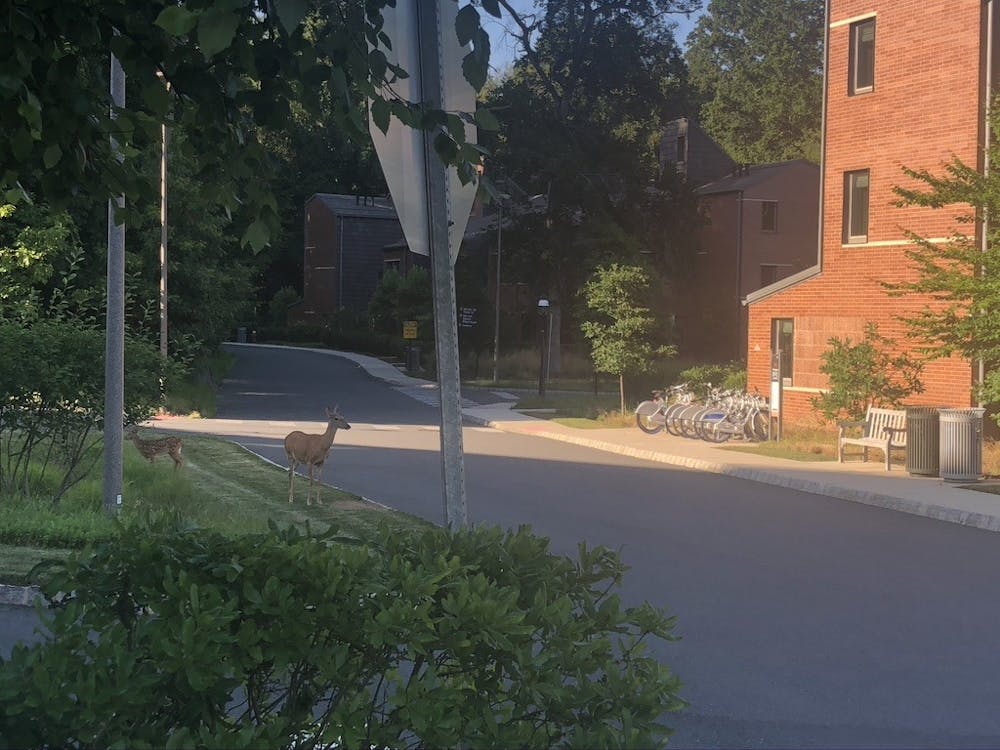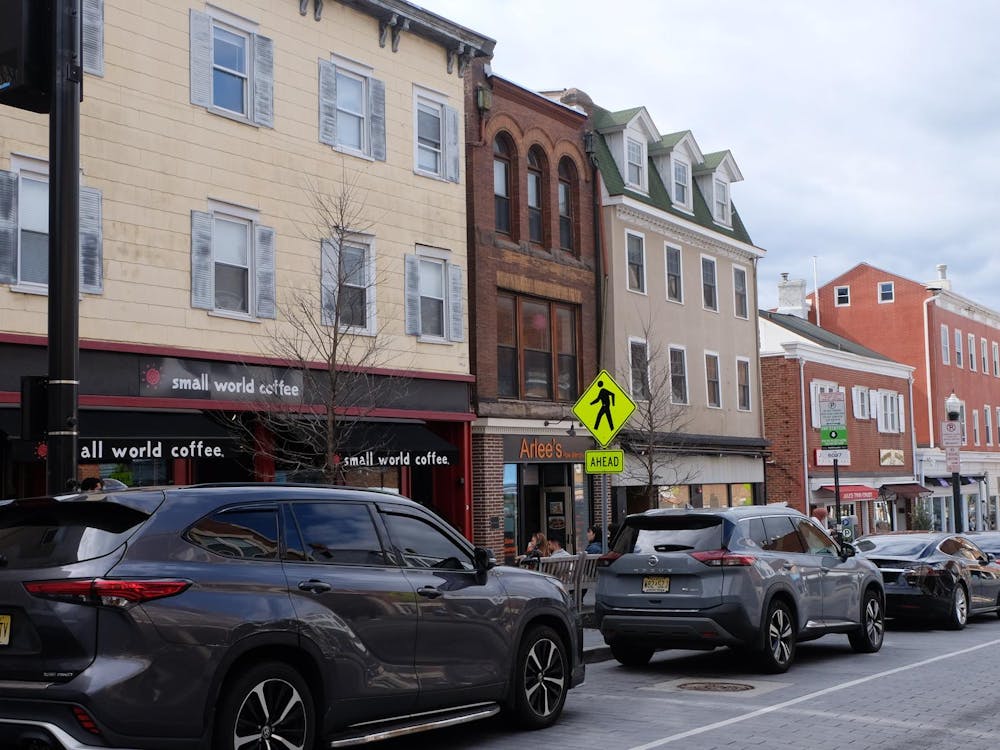What’s been happening on campus during the summer of COVID-19? The short answer is: nothing much.
So, what’s new? Witherspoon Street has been blocked off and effectively become a one-way-street so that its restaurants can have an outdoor seating area. On Nassau Street, Panera and Ricchard’s — the shoe store — closed down recently. The Dinky still rolls in and out of town with the uncanny consistency of a ghost train (I haven’t taken it since late February and don’t know of anybody who has since the shutdown). You often find deserted Adirondacks — the black wooden chairs — arranged in ever-changing patterns that keep them, and anybody using them, at least one tiger apart.
Oh, and there’s a baby fox that has been running around for a few weeks now.

Dennis Schaefer for The Daily Princetonian
As you well know, graduate students, unlike the undergraduate population, were never forced to leave campus. Some of us left town — temporarily, indefinitely, or permanently — when Princeton shut down its on-campus activities in March.
Many of us, however, chose to stay in our off-campus or on-campus housing — the apartments in Lakeside and Lawrence, or the dorm rooms in the Graduate College or the Annexes — and wait out the pandemic there. My admittedly uneducated guess is that the graduate student housing facilities are considerably less occupied than during the regular semester and still house more students than usual during this pandemic summer.
Learning, living, and researching have been upended, and we must now share our outside spaces with the hordes of deer that have taken over the many patches of green on campus (I see them just outside my house sometimes at breakfast). Seeing the streets filled with protesters during the Black Lives Matter protests was a remarkable and welcome sight.
I’ve now begun to realize what a sleepy little town Princeton can be without its undergraduate population; it’s a thought experiment that nobody probably ever wanted to play out. If anybody from Princeton, may it be a TA, a faculty member, or administrator, is telling you at any point that they miss you, it’s very, very true.

But campus is not as empty as you expect. Yes, there is a gähenende Leere (“yawning void,” as we say in German) on campus that might be somewhat characteristic of summer, but that has carried over from the initial shutdown. You often see people from the neighboring towns taking strolls, even as tourism has died down. Construction and other efforts to beautify the campus are continuing, and I’m left wondering how campus, once it emerges anew from the digital ether, will look by the end of August, both architecturally and socially.
On some days, Nassau Street might be teeming with some sort of foot traffic, but you should never count on it when you head there. I have friends who haven’t set foot in downtown Princeton for weeks, if not months. Of course, now that the library allows for book borrowing again and Labyrinth Books has reopened, that might be changing rapidly. Part of my daily routine now involves a quick bike ride to the library, followed by coffee or an outside lunch with a friend.

Dennis Schaefer for The Daily Princetonian
Socially distant gatherings, either with masks or at a considerable distance outside, do occur every now and then, especially with the comparatively low number of cases in New Jersey right now. But we’ve still got quite a few weeks of summer to go in which I am still searching for ways to occupy myself meaningfully. Since this all began, I’ve taken up coloring books and 3D puzzles, collected a small but decent assemblage of board games, both single and multiplayer, and bought a wooden camping chair that I can easily carry around campus.

I don’t know how many of us graduate students would have opted to spend our summer in Princeton if given better alternatives. Like anybody in the world, none of us are having the time in our lives we imagined only a few months ago.
But what sets us apart from the rest of the country is that we are knowledge workers of a particular sort. We possess the relative financial security that is a Princeton graduate stipend and the relative comfort that is living in Princeton, N.J., during the summer of COVID-19.
That is not to say that we have it any easier than others (or vice versa). It does mean that, at least for those of us unburdened by caregiving or other non-academic duties, a summer of mostly contemplative activity is the immense privilege that marks us Princeton graduate students as a social stratum.
My roommate always says: “The only thing that makes being a graduate student at Princeton bearable is the prospect of leaving it for the summer.” I don’t think that’s entirely true anymore.
Dennis Schaefer is a second-year graduate student in the Department of German, living in Lakeside Graduate Housing. He can be reached at dennis.schaefer@princeton.edu.








